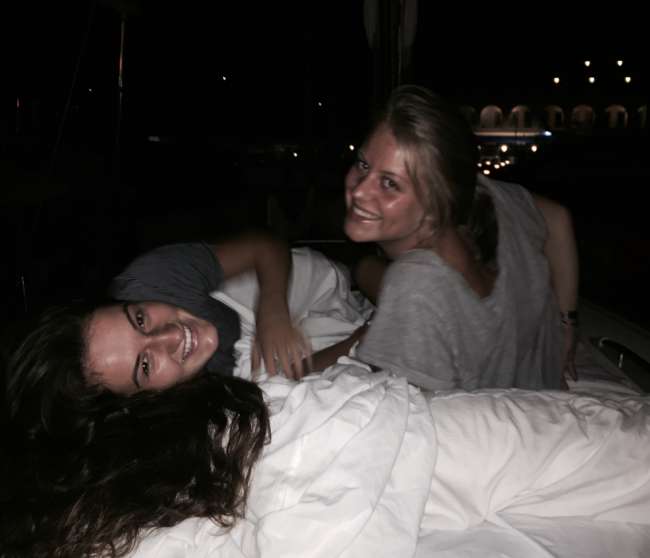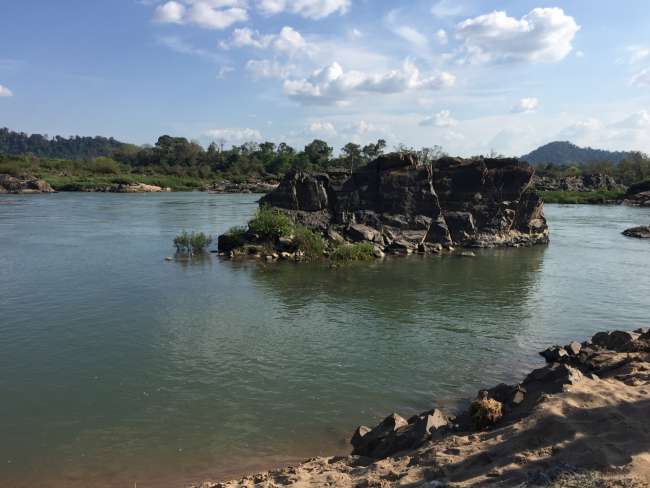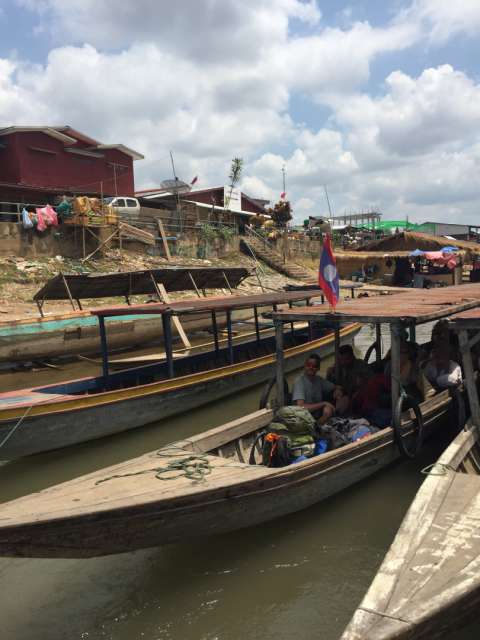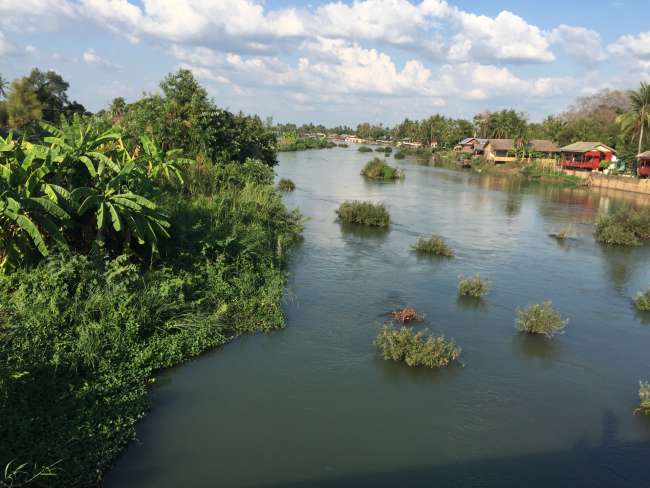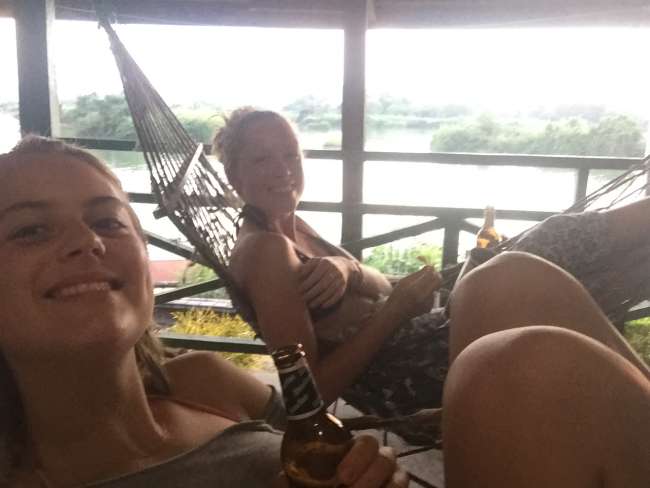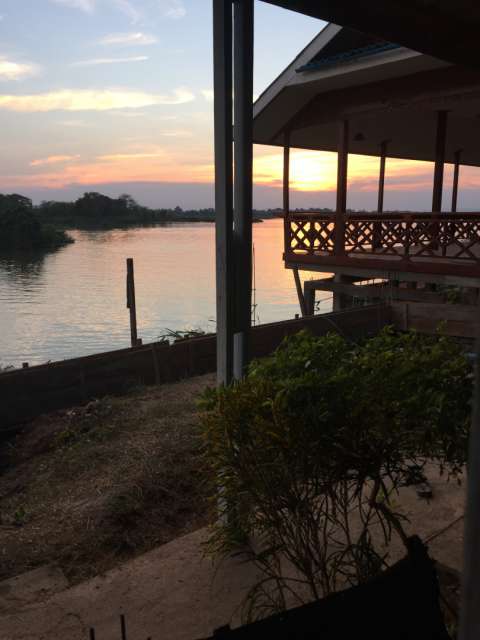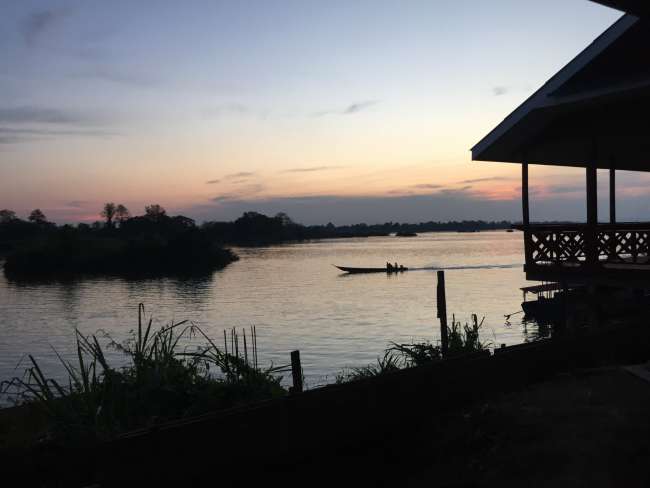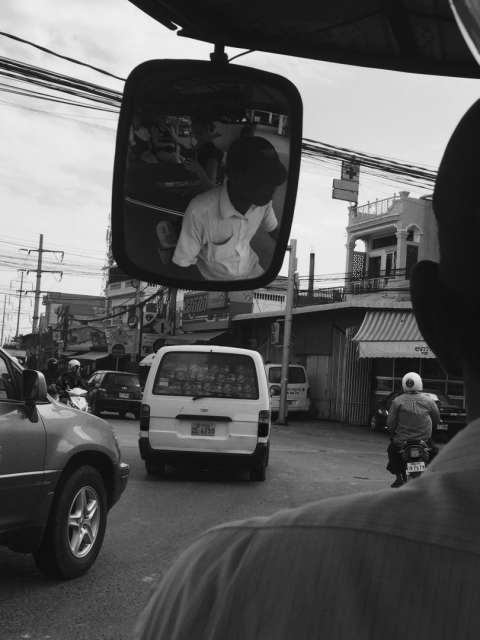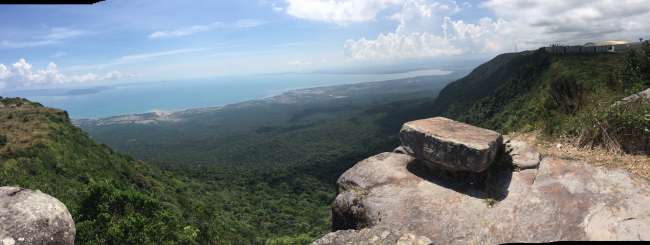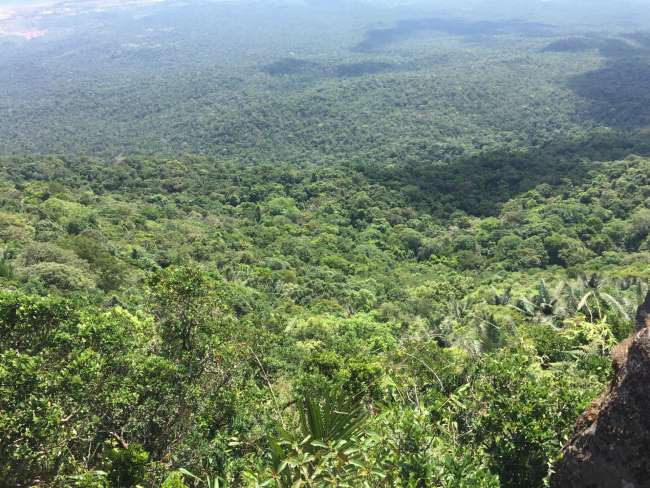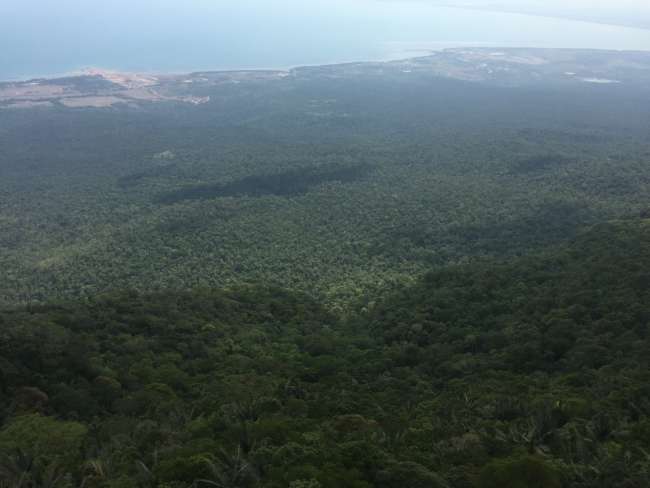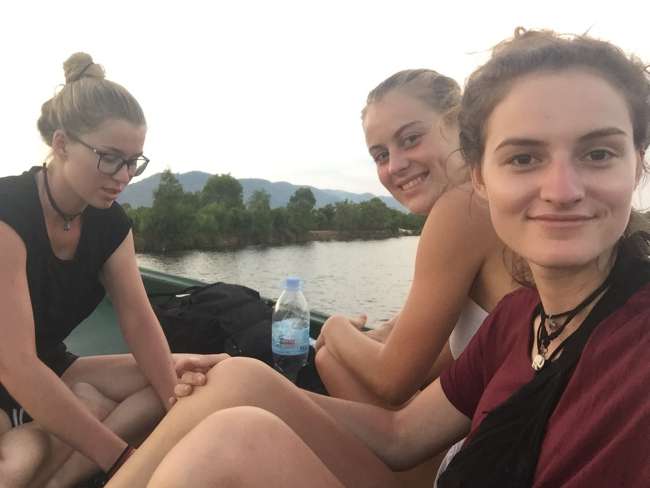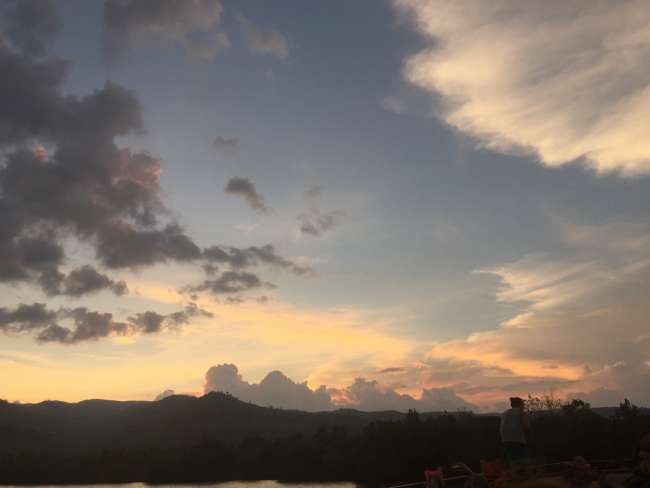Let's continue
Çap edildi: 03.04.2017
After 8 days without internet on Koh Rong, I am back in Sihanoukville, Cambodia. But first, let's talk about the 4000 Mekong Islands in the south of Laos.
So, after an overnight bus ride to the south and a taxi boat to Don Det the next morning, the first thing was to look for accommodation. On the bus, I met two girls from Norway and a Canadian girl, and I joined them. Once we found a bungalow on the sunset side, we quickly showered and went out to eat. After a hearty meal, we rented bicycles and went to the neighboring island of Don Khon. After a 45-minute bike ride in the scorching midday heat, we had to cool off at the waterfall. The waterfall was somewhat disappointing compared to the Kuangsi Waterfalls, but the Khone Phapheng Falls were even more impressive. We spent the afternoon on Don Det and Don Khon and even saw Mekong dolphins in the distance. In the evening, we went out for burgers with two more girls from the Netherlands. It was a delicious change after all the Asian food.
Unfortunately, the next day didn't start off well as there was no night bus to Phnom Penh. So, I had to look forward to a 12-hour bus ride starting at 8 AM. At the border, there was a small argument with the border officers, as they often demand money from foreigners in Asia for everything, including entry and exit stamps and visas. It's difficult to threaten the police in a corrupt country like Cambodia. But anyway, after a little protest, we continued on the partially unpaved roads as announced. The Cambodian roads have many potholes, so sleep was once again out of the question on this journey.
Arriving in Phnom Penh in the evening, Jil and Nati were already waiting for me in the hostel. They also came by bus from Ho Chi Minh City on the same day, but their journey wasn't as long. After a small snack at the night market, we went to bed relatively early.
The next day, after breakfast, at 10 AM, we first visited the S21-Tuol Sleng Genocide Museum. It is where around 20,000 people were detained and tortured under the leadership of communist politician Pol Pot. Only 7 out of the 20,000 inmates survived. One of these 7 sold his biography as a book and told us the story of how his wife's throat was slit in front of his eyes. It is hard to imagine the atrocities committed by the Khmer Rouge in Cambodia from 1975 to 1979. When visiting the Killing Fields, one must not be too sensitive. An audio-guided tour takes you past the mass graves and tells the story of what happened. Many affected individuals share their own experiences and losses within their families and circles of friends. In the end, you can go into a memorial stupa where hundreds of skulls are displayed in a cabinet, sorted by age, gender, and cause of death.
In my opinion, the Killing Fields are a must-do for tourists, although it is, of course, a place filled with mourning, horror, and fear.
We spent the rest of the day leisurely, as the next day we had to continue to Kampot at 7 AM.
We arrived in Kampot around 11 AM and went straight to the Bokor National Park on our scooter. After 1 and a half hours, we reached the viewpoint and enjoyed a view of miles of jungle and coast. The national park also had many ruins of small cathedrals, churches, and a casino to visit. On our way back, we had to hurry as a storm was brewing at an altitude of 1700 meters and it started to rain. Once we reached the bottom, the sky cleared again, and with a few others from our hostel, we went on a sunset boat tour on the Mekong and then went to bed.
After waking up the next morning, we visited a pepper farm as Kampot is known for its good and tasty pepper.
Then, at around 12 PM, it was time to get back on the bus. Next stop: the port of Sihanoukville.
Jogap

